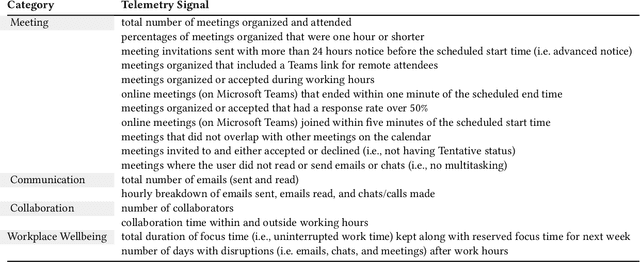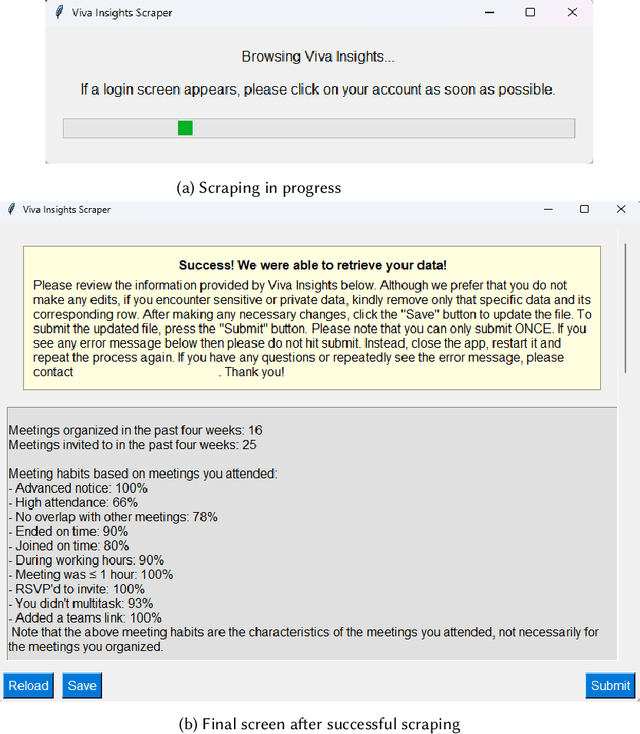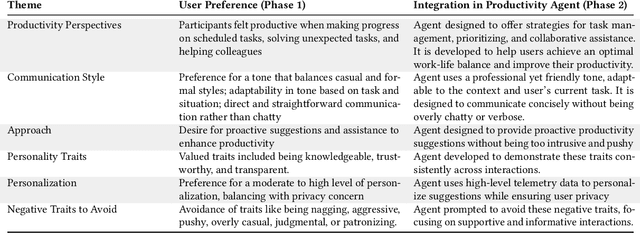Talie Massachi
MindScape Study: Integrating LLM and Behavioral Sensing for Personalized AI-Driven Journaling Experiences
Sep 15, 2024Abstract:Mental health concerns are prevalent among college students, highlighting the need for effective interventions that promote self-awareness and holistic well-being. MindScape pioneers a novel approach to AI-powered journaling by integrating passively collected behavioral patterns such as conversational engagement, sleep, and location with Large Language Models (LLMs). This integration creates a highly personalized and context-aware journaling experience, enhancing self-awareness and well-being by embedding behavioral intelligence into AI. We present an 8-week exploratory study with 20 college students, demonstrating the MindScape app's efficacy in enhancing positive affect (7%), reducing negative affect (11%), loneliness (6%), and anxiety and depression, with a significant week-over-week decrease in PHQ-4 scores (-0.25 coefficient), alongside improvements in mindfulness (7%) and self-reflection (6%). The study highlights the advantages of contextual AI journaling, with participants particularly appreciating the tailored prompts and insights provided by the MindScape app. Our analysis also includes a comparison of responses to AI-driven contextual versus generic prompts, participant feedback insights, and proposed strategies for leveraging contextual AI journaling to improve well-being on college campuses. By showcasing the potential of contextual AI journaling to support mental health, we provide a foundation for further investigation into the effects of contextual AI journaling on mental health and well-being.
Contextual AI Journaling: Integrating LLM and Time Series Behavioral Sensing Technology to Promote Self-Reflection and Well-being using the MindScape App
Mar 30, 2024Abstract:MindScape aims to study the benefits of integrating time series behavioral patterns (e.g., conversational engagement, sleep, location) with Large Language Models (LLMs) to create a new form of contextual AI journaling, promoting self-reflection and well-being. We argue that integrating behavioral sensing in LLMs will likely lead to a new frontier in AI. In this Late-Breaking Work paper, we discuss the MindScape contextual journal App design that uses LLMs and behavioral sensing to generate contextual and personalized journaling prompts crafted to encourage self-reflection and emotional development. We also discuss the MindScape study of college students based on a preliminary user study and our upcoming study to assess the effectiveness of contextual AI journaling in promoting better well-being on college campuses. MindScape represents a new application class that embeds behavioral intelligence in AI.
From User Surveys to Telemetry-Driven Agents: Exploring the Potential of Personalized Productivity Solutions
Jan 17, 2024



Abstract:We present a comprehensive, user-centric approach to understand preferences in AI-based productivity agents and develop personalized solutions tailored to users' needs. Utilizing a two-phase method, we first conducted a survey with 363 participants, exploring various aspects of productivity, communication style, agent approach, personality traits, personalization, and privacy. Drawing on the survey insights, we developed a GPT-4 powered personalized productivity agent that utilizes telemetry data gathered via Viva Insights from information workers to provide tailored assistance. We compared its performance with alternative productivity-assistive tools, such as dashboard and narrative, in a study involving 40 participants. Our findings highlight the importance of user-centric design, adaptability, and the balance between personalization and privacy in AI-assisted productivity tools. By building on the insights distilled from our study, we believe that our work can enable and guide future research to further enhance productivity solutions, ultimately leading to optimized efficiency and user experiences for information workers.
 Add to Chrome
Add to Chrome Add to Firefox
Add to Firefox Add to Edge
Add to Edge